Women’s History Month Spotlight: Mentoring Women In Ministry
Rev. Dr. La Barr, Rev. Beghtle Mahle, Rev. Dr. Patterson, Rev. Dr. Bell Odom, Rev. Smith and Rev. Hosemann-Butler salute those that helped them
As we commemorate Women’s History Month, we thank God for the women clergy who have paved the way in the North Texas Conference. We asked several of them to share their experiences of mentoring – both those who mentored them and how they have mentored the women that have come after them in ministry.
Rev. Dr. Joan La Barr | ordained deacon in 1980, elder in 1983
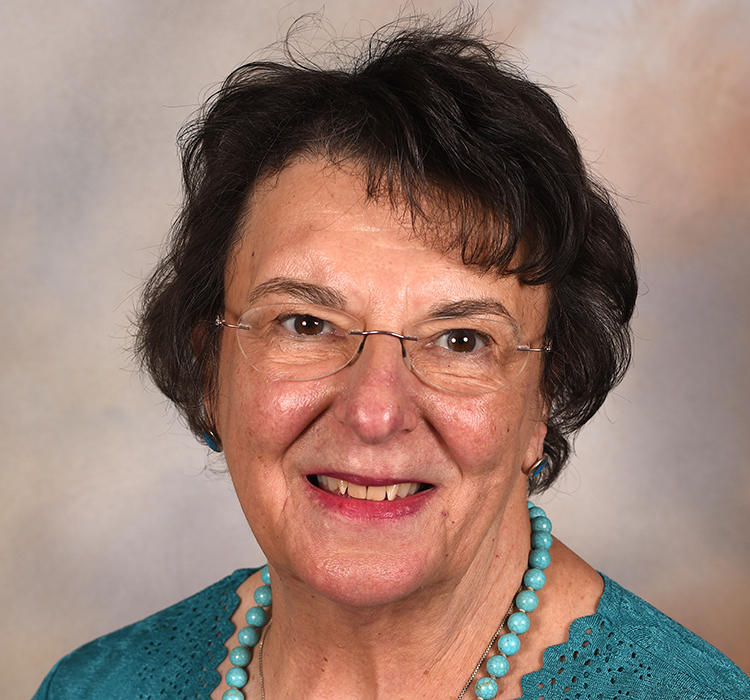 Who were your mentors? In 1987 all my major mentors were men because they were the ones who were in a position to do that. My first mentor was Bob Robertson, who was a communications person at the conference. Don Benton gave me my big chance when he was newly appointed at Lovers Lane UMC to come on board as communications director. I did my whole seminary and internship while there.
Who were your mentors? In 1987 all my major mentors were men because they were the ones who were in a position to do that. My first mentor was Bob Robertson, who was a communications person at the conference. Don Benton gave me my big chance when he was newly appointed at Lovers Lane UMC to come on board as communications director. I did my whole seminary and internship while there.
Bruce Weaver, who was superintendent of Denton-Dallas district, took an interest in me. He was the one who groomed me to step out of my comfort zone and become a senior pastor. He worked with me at least a year before I was appointed to First UMC Gainesville in 1987. It was a church of about 500 members, and my appointment as a woman to lead that church was such a big deal that there was a story on the front page of the Dallas Times Herald that the Methodists had made this big news!
What lesson has stuck with you? I had an experience where one of the families that left the church because I was named pastor had a wedding for one of their children. The pastor couldn’t do it at the last minute, and there was no one else available. So, I was their absolute last choice. I did not want to do it, but I did it and we got through it. At the reception, a woman I’d never seen before came up to me and said, “Joan, before today I really did not know what I thought of having a woman pastor but watching what you just did now I know. You have made up my mind.” In that bizarre situation I had a convert, someone open to women in ministry. This really defined a lot of my ministry. So, when difficult things came and I had to swallow my pride, what I tried to do was be professional and pastoral and always remember — you never know how God can work even in this kind of situation. I always try to take myself lightly and my job seriously.
What are you most grateful for? My mentors gave me a sense of encouragement, of being cared for, a sense that even when I wasn’t totally confident in myself there were those out there who were confident in me.
What advice would you give future pastors? You have to recognize that ministry is always going to have its challenges. It’s a hard job and requires a great deal of commitment. As I look at some of my younger colleagues today, it’s not easy. You’ve got to be prepared for the constant 24/7 challenges of a job, and you’ve also got to be flexible because circumstances change. You’ve always got to be ready to know when it’s appropriate for you to make a change. Always be ready to jump in and meet the next challenge
Rev. Pat Beghtle Mahle | ordained deacon 1985, elder in 1988
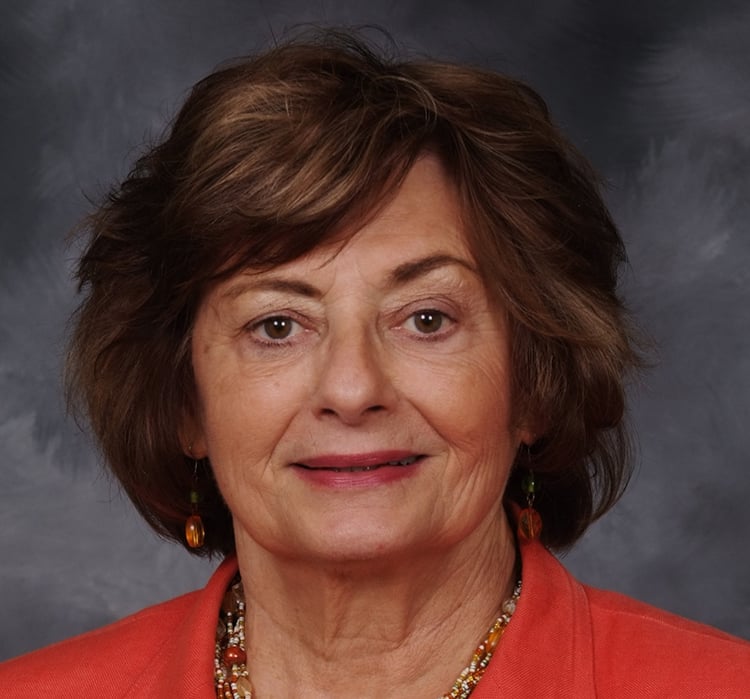 Who were your mentors? Most of the mentors were guys. Bruce Weaver was one of the most wonderful mentors for me because he believed in women in ministry when a lot of people didn’t. Wally Chapel was a wonderful mentor. When I did Clinical Pastoral Education at the hospital, Bob Davis was an absolutely amazing mentor for me. He really called me to look at my call to ministry.
Who were your mentors? Most of the mentors were guys. Bruce Weaver was one of the most wonderful mentors for me because he believed in women in ministry when a lot of people didn’t. Wally Chapel was a wonderful mentor. When I did Clinical Pastoral Education at the hospital, Bob Davis was an absolutely amazing mentor for me. He really called me to look at my call to ministry.
What are you most grateful for? They believed that I was called, and they encouraged me to stay with it and not give up. When I met with the PPR committee to talk about my call to ordained ministry, they said I must mean a diaconal role — surely I didn’t mean I wanted to be ordained. It was easy for me to doubt my call because it was so hard for it to be recognized. So having others believe in my call meant a lot.
What piece of advice has stuck with you? Believe in your call. Just believe what you’re hearing, don’t listen to the rhetoric out there. Just trust in your call, trust what you’re hearing. Also, David Shawver said in a sermon at Annual Conference, “Dance with the one who brung ya, not the ones who are giving you flack about what you’re doing.” That’s been my mantra.
What has it been like to mentor future generations of women in ministry? When I was on the cabinet for eight years, my goal was always that women’s names should be on the table with men if there was a church open. I believed as their district superintendent that they were called and should have a chance to go to that church the same as anybody else. So that was always something that I wanted to do, as well as to help women hear their call. That’s been a role I've played for many years. I think it’s still hard even in this day and time. It’s easy for men to be affirmed in a call to ministry but not so much for women. The challenges are so great to be a woman in ministry.
What advice would you pass on to future clergy? One thing I had to learn and that I’m thankful for is that some of my biggest naysayers at the beginning who were going to leave the church because a woman was appointed – because God couldn’t do such a thing – they became some of my greatest supporters. If I didn’t just say “well ignore them,” but to stay with them, to be present to them and to nurture them with my love and the gospel, more times than not they became my biggest supporters and the ones who really helped me in my ministry.
It’s not easy, but stay the course. It’s worth it to answer your call. Don’t give up. And know there are going to be huge sacrifices not only for you, but for your family. But in the long run, if God calls you, you just have to stay with it.
Rev. Dr. Sheron Patterson | ordained deacon in 1989, elder in 1991
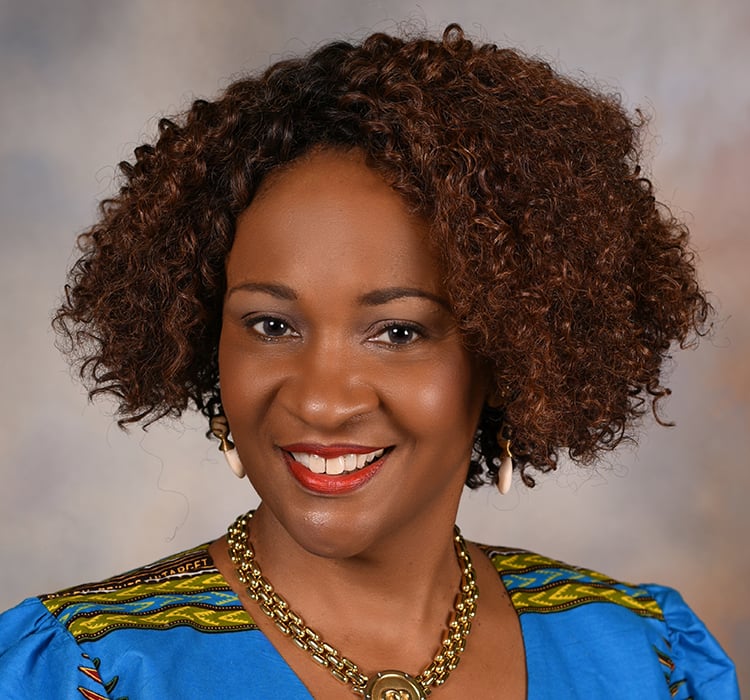 Who were your mentors? Georgene Blanton and Ann Cardwell were helpful to me. There were no African American clergywomen.
Who were your mentors? Georgene Blanton and Ann Cardwell were helpful to me. There were no African American clergywomen.
What are you most grateful for about those mentoring relationships? They showed me that I could be myself.
What is one piece of advice that a mentor gave you that stuck with you? Their advice was to trust God and keep moving.
What has it been like to mentor the next generation of women pastors? It is a joy to help those coming through. It is hard.
Anything else you'd like to add? It is an honor to be first! God did it!
Rev. Dr. Janet Bell Odom | ordained deacon in 1995, elder in 1997
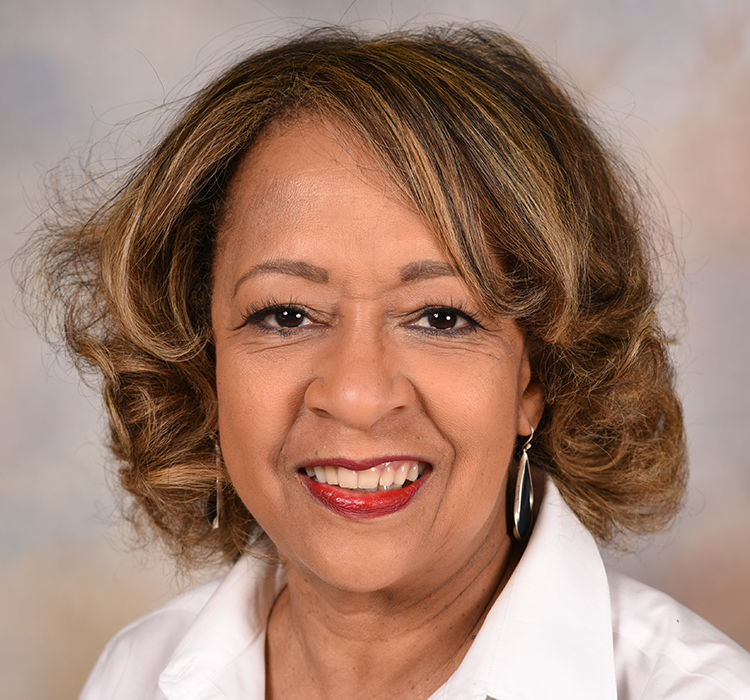 Who were your mentors? My mentoring came from my mother and the women in my church because of what they taught me in my Sunday School classes and how they led me through my Christian walk at church. Because my mom placed in my heart about the love of God, it was very easy to hear my calling when I received it. When I was in seminary, Zan Holmes was my mentor. I attended church at St. Luke, and he led us through our time together.
Who were your mentors? My mentoring came from my mother and the women in my church because of what they taught me in my Sunday School classes and how they led me through my Christian walk at church. Because my mom placed in my heart about the love of God, it was very easy to hear my calling when I received it. When I was in seminary, Zan Holmes was my mentor. I attended church at St. Luke, and he led us through our time together.
What are you most grateful for? The women who mentored me were very clear about what I needed to do in a life of being a Christian and a life of walking with God. And when I went into ministry Zan Holmes said, “This is what you have to do. You need to go to seminary, you need to get your training, you need to be in a Bible study.” The piece he gave us was that even though we were in seminary we still needed to be in a Bible study. I had a hunger to know more and for my walk to be closer to the Lord. I had a hunger to learn how to be a leader in the church.
God placed me at St. Luke with Zan Holmes. We were talking about ministry once and he saw the hunger and he looked at me and said, “Being a pastor is an awesome responsibility” and from there I just took that and had to understand it. With those words I went and learned from him and from other women.
What is one piece of advice that stuck with you? Zan always told me to love the people. In 1997 I went to my first appointment at Lambeth UMC as senior pastor from St. Luke’s and he said, “Go out there and love the people.” And that has always stuck with me. That’s what I tell the people I’m mentoring now: you have to love the people. So, if you do that without losing yourself, then you’re doing what God wants you to do.
Rev. Kerry Smith | ordained elder 2006
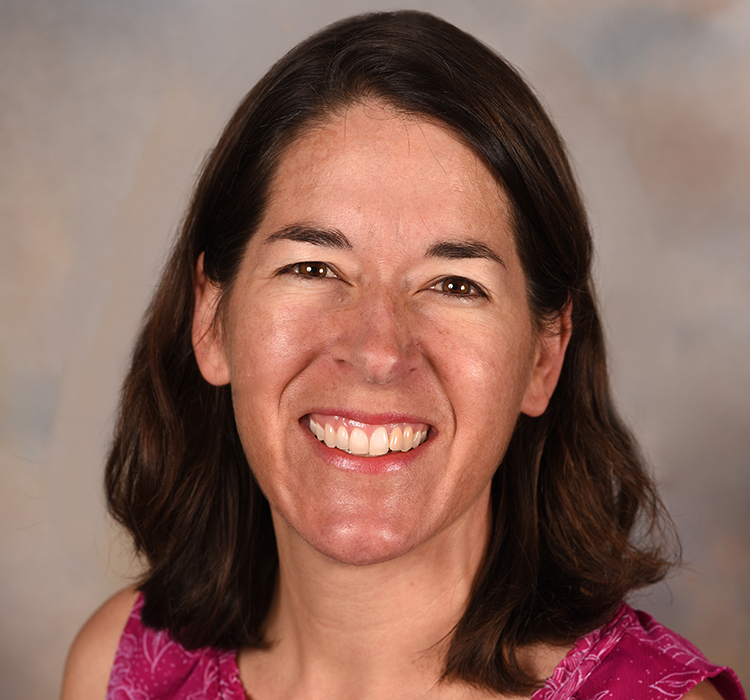 Who were your mentors? Kathleen Baskin-Ball was my mentor pastor and laid hands on me at my ordination. Kathleen modeled for me how to have a pastor's heart. Sara Hardaway was my candidacy mentor and she taught me about taking time for rest and renewal. Patsy Brundige modeled for me how to be genuine as a pastor. Patsy didn't hide any part of herself. With holy boldness, she was a pastor.
Who were your mentors? Kathleen Baskin-Ball was my mentor pastor and laid hands on me at my ordination. Kathleen modeled for me how to have a pastor's heart. Sara Hardaway was my candidacy mentor and she taught me about taking time for rest and renewal. Patsy Brundige modeled for me how to be genuine as a pastor. Patsy didn't hide any part of herself. With holy boldness, she was a pastor.
What is one piece of advice a mentor gave you that stuck with you? The advice that I always think of I received from a District Chairman (like a Bishop) when I served as a pastor in England. He said to me, "I have four children, but I only know two of them because of the choices that I made with the church." I didn't want that to be something that I would ever say, so for me that meant that I served in a part-time capacity for seven years while my children were young.
Another piece of advice came indirectly from Tommy Palmer. Someone told me he would leave early during the week instead of taking a full day off, so I did the same. My wisdom came from seeing how men did ministry and then realizing that I could do it that way too.
What are you most grateful for when you think of those who blazed the trail before you? I have never had to be the first woman senior pastor in a church, so I am thankful for women like Marti Soper and Valerie Knox Mireb who came before me in my appointments. However, it is hard to let go of the memory of a church member slamming the door in my face because "I would never be their pastor" since I was a woman. Scott Jones taught me at Perkins to love my people, and that has been my mantra. I love my people and the rest falls into place.
I couldn't do any of this work without my spouse's support. My husband gets the kids to church and supports me so much. He doesn't know how to play the piano (he has been asked by well-meaning church members), and I make the potluck dish, but his presence at church is invaluable to me.
Rev. Dr. Anna Hosemann-Butler | ordained elder in 2007
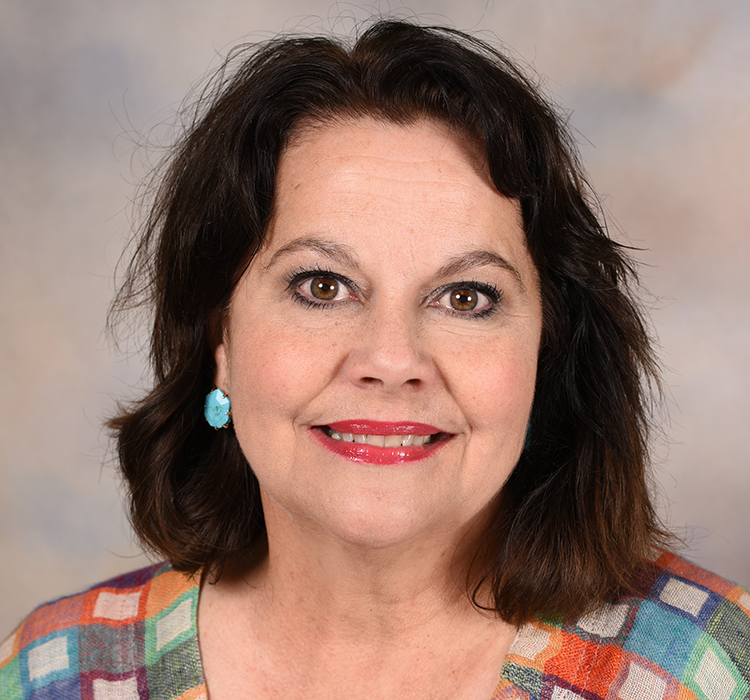 Who were your mentors? Milton Gutierrez did all the things that prepared me to be a pastor. He and Larry George were very supportive. Martha Gilmore was the internship advisor at Perkins School of Theology, and she was a mentor to so many of us. She blazed the trail in the 1970s. When I asked her about when she entered seminary was it wonderful or was it awful, she said “all of the above.”
Who were your mentors? Milton Gutierrez did all the things that prepared me to be a pastor. He and Larry George were very supportive. Martha Gilmore was the internship advisor at Perkins School of Theology, and she was a mentor to so many of us. She blazed the trail in the 1970s. When I asked her about when she entered seminary was it wonderful or was it awful, she said “all of the above.”
Carol Woods was the only one able to pastor major churches, but everyone kept at it. Donna Whitehead did a lot of mentoring and had a long career in ministry, but she never led a church. She always served as an associate and was very effective at what she did, but the whole idea of women in leadership as senior pastors is relatively recent. My recollection is that the district superintendents were more gender equal than the lead pastors.
Pat Beghtle Mahle was on the cabinet and got me and some others into lead pastor roles in the early 2000s. There are at least five generations of shoulders that this current generation is standing on.
What is one piece of advice a mentor gave you that stuck with you?
Martha told me, “Listen to your call and live into your call no matter what. If you’re called to preach you preach, and you figure out a way to make that happen. Find your voice and use it to make that happen.”
Published: Wednesday, March 23, 2022
